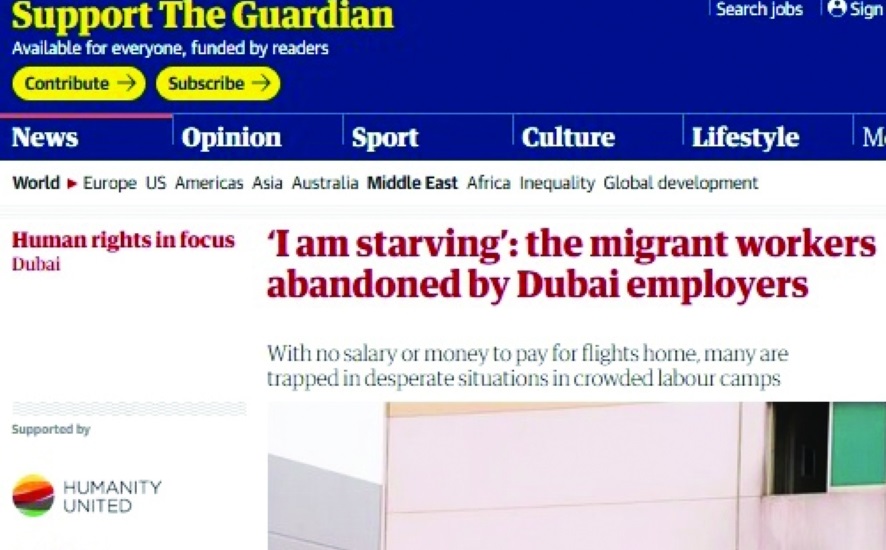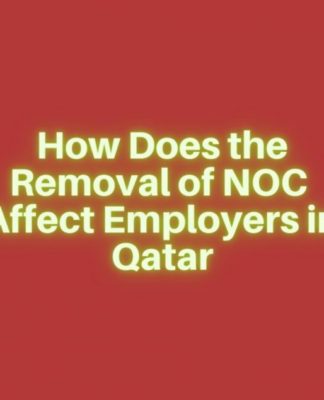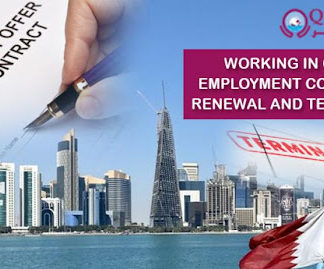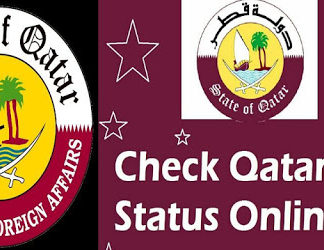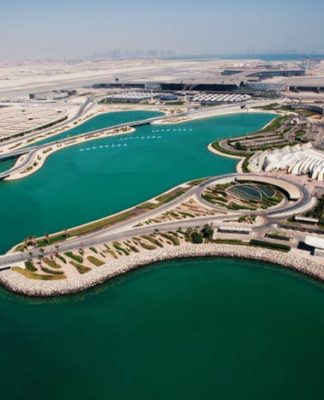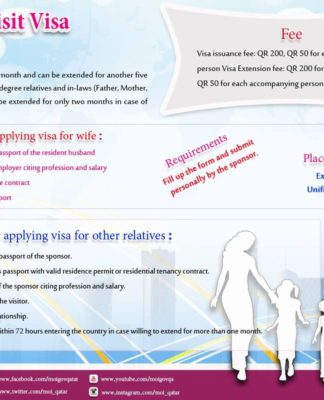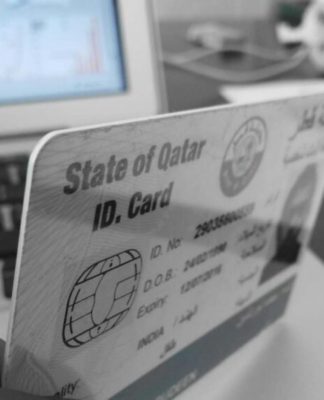The “Guardian” newspaper published a report on the conditions of employment in Dubai, who were abandoned by business owners and left them hungry. In its report, it presented sad stories of expatriates stuck in Dubai due to the Corona crisis, including “Hassan”, who does not know if he will eat today or not. The 30-year-old Pakistani has lived in Dubai for more than a decade as a construction worker, but the spread of the Coronavirus epidemic has led to his loss of work, and without a salary he cannot live in Dubai or buy a ticket to travel to his country, Pakistan. He told the newspaper: “The suffering is severe and it is difficult for us to obtain food and no one is helping us, and without money we cannot travel either,” and “How will we buy the tickets?” According to “Arabi 21”.
Hassan and 98 of his colleagues were left alone without assistance in a labor camp located on the edge of the city, and without any contact with the former employers who hired them, the construction company or previous undertakings, and in this three-story building, the multi-layered iron beds are distributed in his rooms. Practicing any kind of social distancing, barbed wire surrounds the compound, and stands guard over its doors.
The spread of Covid-19 and the decline in oil prices have resulted in a double blow to the UAE economy and the loss of thousands of jobs, and the workforce in the country accounts for nearly 90 percent, and as a result of this, thousands of people who have lost their jobs found themselves stuck in a country that does not provide a social safety net for them. The crisis The government ordered companies and business owners to pay salaries to migrant workers and provide them with food until their services were dispensed with, but many companies did not comply and left them to rely on themselves or donations, and the Dubai government did not respond to comment on what was mentioned in the report, and because the need is great, local organizations provide Hundreds of meals a week.
Claudia Bento, a member of “Beit Umm”, a Dubai yoga association that registered itself a while ago as a charity to provide food to hungry migrant workers, says: We provide cooked food instead of bags of rice and other materials, to make sure that they eat well and do not sell donations. They need to send money to their families, and the most important thing is to eat now. ”The newspaper said that the men who were interviewed are under pressure from their families to provide them with the money they used to send before the pandemic.
Hassan used to receive 2,000 dirhams, but after a heart surgery, the employer began to reduce 75% of his salary, and give it to him as payments, and because the job does not cover health care, he is in danger of getting sick again. He said, “Medicines are compulsory since the operation, and I used to get pills through health insurance, but it was cut, and my medicines cost 950 dirhams per month, and I do not have enough to buy them.” Usually foreign workers send the large percentage of their salaries to their families in South Asian countries, and it depends Most of them get the amount provided to them after the end of their service, so that they can take it with them when their work is done. While some countries organize limited trips to transport workers stranded in the Gulf, most of those interviewed by the newspaper said that they could not leave until they get their dues. Lawyer Barney Almazzar said: “In recent months work-related cases have doubled.” And it provides free services to immigrants at the Philippine embassy in Abu Dhabi and the consulate in Dubai, and said: “There is a big problem for companies that were unable to pay wages and costs for workers, which prompted some of them to liquidate their businesses without being able to pay their employees’ wages.” This is the case of Ansar Abbas, 39 from Punjab in Pakistan who has not received a salary for 10 months since 2019 and lost his job. He is married and has a child of ten and another in four, and he cannot bear to return empty-handed. He told the newspaper: “A year has passed and I have not sent money to My family is because I am hungry, and I cannot send anything, and we are sick and tired in this place, and we want to flee, and I cannot return without anything. ”There are a number of workers still in their work and they go every day even though they did not get the salary.
Shahidat, a 28-year-old from Bangladesh, is still in his job even though he has not received his salary since last January. He supports his elderly parents and wants to get married. This is impossible without an income. He said: “I love my job, and I want to work in Dubai, and no one listens to us. Nobody feels With our pain, and not thinking about our families, our lives, and our future. “














